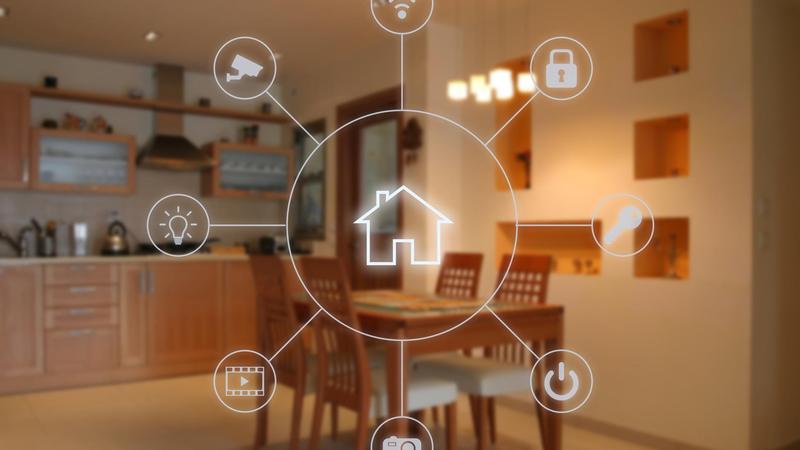30 January, 2020 · Blog

We live in an age where energy saving and energy efficiency are in vogue. One of the ways we save on electricity is to install home automation systems in our home.
Having a Smart Home involves connecting and integrating the various facilities and appliances in a single system that can be controlled remotely via a tablet or smartphone connected to the Internet.
Home automation and saving electricity
The high price of electricity in Spain and the fight to reduce pollution has led people to find ways to reduce their electricity bills.
As we have said, one way to reduce electricity consumption and maximize the energy efficiency of a home is home automation and smart systems. These allow you to make fully efficient use of all the systems in a home, saving up to forty percent in the bill.
One of the most revolutionary aspects of home automation is not the remote control, but the ability of these systems to learn and adapt their operation to both external and internal factors of the home. This information comes from the analyzes made by our consumption system. The system knows where and when we consume the most and is able to determine actions that decrease this consumption.
What can be controlled through home automation?
At present virtually any home system can be “domotized”. However, there are a number of aspects that are most important in this regard:
Lighting: This is something that usually does not happen, but you may have left the lights on and gone home. This is an expense, even if it is small. But these systems not only remotely turn the light on or off, they can also adapt the lighting to the outside light or the person in the room.
Appliances: Appliances are one of the things I spend most on housing. Controlling and turning on the oven from your mobile phone, refrigerators that make us the purchase or ceramic hobs adapted to food are some of the aspects that save electricity in our kitchen.
Security: The alarm and video surveillance systems have been able to be controlled remotely for some time. We can turn the alarm on or off, open or close doors, see what is happening in our home live or respond immediately to any problem.
Air conditioning: Similar to light, controlling this remotely saves a lot. Turn these systems on or off to get to the ready house, determine a temperature or a burning schedule …
Advantages of a home automation
- Energy Saving: Efficient use of electricity results in significant energy savings and, thus, a decrease in electricity bills.
- Greater security: As we have said, these systems allow for more global security and an immediate response to any kind of event.
- Greater communication: It is clear that a refrigerator cannot speak or communicate, just like a light bulb. Home automation systems allow full communication between person and home.
- Comfort and well-being: The convenience of controlling your entire home remotely and getting everything ready not only increases comfort, but also saves you time.
Disadvantages of a home automation
- Starting Cost: Smart systems and appliances are more expensive than conventional ones.
- Malfunctions and maintenance: Damage to the oven does not mean that you cannot use the fridge. However, if the home automation system fails, we may run out of things.
- Connection speed: It sure happened to you, if you connect a lot of things to the Wi-Fi it is very slow. Imagine a smart system using your Internet connection…



